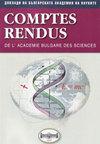维生素D水平与肠道寄生虫之间的关系
IF 0.3
4区 综合性期刊
Q4 MULTIDISCIPLINARY SCIENCES
Comptes Rendus De L Academie Bulgare Des Sciences
Pub Date : 2023-10-31
DOI:10.7546/crabs.2023.10.18
引用次数: 0
摘要
免疫系统会受到维生素D缺乏的影响。在这项研究中,我们调查了维生素D水平与肠道寄生虫之间是否存在显著关联。本研究共纳入239例在内科门诊就诊的胃肠疾病患者。记录患者的人口学特征。粪便样本在10天内重复检查3次。采用玻璃纸带法、天然lugol法、沉淀法和改良Kinyoun抗酸染色法检测粪便标本中的寄生虫。将样品制备、染色并在显微镜下检查。研究人员检测了从患者身上采集的血液样本中的维生素D水平。维生素D水平低于20 ng/ml的患者诊断为维生素D缺乏症。二元logistic回归分析显示,血清维生素D水平仅为碘达米巴和环孢子虫的显著信息变量。没有发现维生素D水平和其他肠道寄生虫存在之间的联系。血清维生素D水平低于20 ng/ml的患者发生碘达莫巴阳性的风险高出2.54倍($$p<0.01$$)。同样,血清维生素D水平低于20 ng/ml的患者与血清维生素D水平高于20 ng/ml的患者相比,环孢子虫阳性的风险高2.44倍($$p<0.01$$)。维生素D缺乏的人肠道原生动物中碘达米巴和环孢子虫呈阳性的风险很高。本文章由计算机程序翻译,如有差异,请以英文原文为准。
The Association Between Vitamin D Levels and Intestinal Parasites
Immune system is known to be affected by vitamin D deficiency. In this study, we investigated whether there was a significant association between vitamin D levels and intestinal parasites. A total of 239 patients treated at the internal medicine outpatient clinics with gastrointestinal complaints were included in this study. Demographic characteristics of the patients were recorded. Examination of stool samples were repeated three times within 10 days. Cellophane band method, native-lugol, sedimentation and modified Kinyoun's acid fast stain methods were used for the detection of parasites in the stool samples. The samples were prepared, stained and examined under a microscope. Vitamin D levels were examined in the blood samples collected from the patients. Patients having vitamin D level under 20 ng/ml were diagnosed with vitamin D deficiency. Binary logistic regression analysis showed that serum vitamin D level was significant informative variable for only Iodamoeba and Cyclospora. No association between vitamin D level and the presence of other intestinal parasites was found. The risk of Iodamoeba positivity was 2.54 times higher in the patients with a serum vitamin D level under 20 ng/ml ($$p<0.01$$). Similarly, the risk of Cyclospora positivity was 2.44 times higher in the patients with a serum vitamin D level under 20 ng/ml compared to those with a serum vitamin D level over 20 ng/ml ($$p<0.01$$). The risk for positivity of Iodamoeba and Cyclospora that are among the intestinal protozoa is high for people with vitamin D deficiency.
求助全文
通过发布文献求助,成功后即可免费获取论文全文。
去求助
来源期刊
CiteScore
0.60
自引率
33.30%
发文量
181
审稿时长
3-6 weeks
期刊介绍:
Founded in 1948 by academician Georgy Nadjakov, "Comptes rendus de l’Académie bulgare des Sciences" is also known as "Доклади на БАН","Доклады Болгарской академии наук" and "Proceeding of the Bulgarian Academy of Sciences".
If applicable, the name of the journal should be abbreviated as follows: C. R. Acad. Bulg. Sci. (according to ISO)

 求助内容:
求助内容: 应助结果提醒方式:
应助结果提醒方式:


